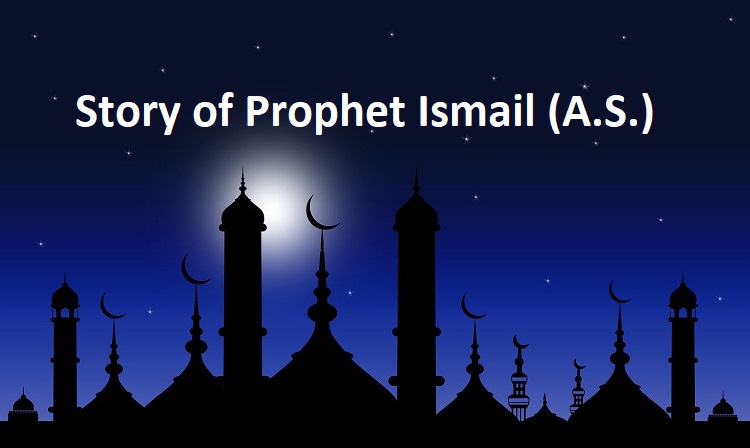The story of Prophet Ismael (Ishmael) holds a significant place in Islamic tradition, both as a prophet and as the son of Prophet Ibrahim (Abraham). His story is not only integral to Islamic faith but also plays a key role in the broader Abrahamic religions, including Judaism and Christianity. As the first son of Ibrahim and Hajar (Hagar), Ismael’s life is filled with lessons about sacrifice, patience, and trust in God. His narrative is mentioned in the Qur’an and the Hadith (sayings of the Prophet Muhammad) and remains an essential aspect of Islamic history.
In this article, we will explore the life and journey of Prophet Ismael, focusing on key events that shaped his story and legacy. From his birth and early life in the desert to his role in the construction of the Kaaba, we will delve into the significance of his life in the context of Islamic teachings. Finally, we will conclude with some important lessons drawn from his story, along with frequently asked questions (FAQs) to further clarify his role in Islam.
The Birth of Prophet Ismael

Prophet Ibrahim (Abraham), after being miraculously saved from the fire set by his people due to his unwavering faith in God, received God’s command to leave his wife, Sarah, and his son, Ismael, in the barren desert of Mecca (modern-day Saudi Arabia). This event took place after a long wait for a child. For many years, Sarah, his first wife, remained childless. However, when Ibrahim was an elderly man, God blessed him with a son, Ismael, through his second wife, Hajar (Hagar), who was a servant to Sarah.
When Ismael was a young child, Sarah, having become jealous of Hajar and her son, asked Ibrahim to take them away. According to Islamic tradition, Ibrahim, though saddened, obeyed God’s command and took Hajar and Ismael to a remote place in the desert of Mecca, where there were no sources of water or food. This part of the story demonstrates the unwavering trust in God that Ibrahim and his family had, even in the face of difficult circumstances.
The Testing of Hajar and Ismael
One of the most pivotal events in Ismael’s life is the story of how his mother, Hajar, was left in the desert with her young son. As the story goes, after Ibrahim left them in the desert, Hajar searched for water for her son. With no signs of life in sight, she ran between the hills of Safa and Marwah seven times in search of water. Her perseverance was a key moment in the history of Islam and is commemorated by Muslims during the Hajj pilgrimage.
When all hope seemed lost, a miracle occurred. The angel Jibreel (Gabriel) appeared to Hajar and struck the ground where Ismael’s foot had touched the earth, causing a spring of water, known as the Zamzam, to gush forth. This miracle not only saved the lives of Hajar and her son but also set the foundation for the city of Mecca, as the well of Zamzam continues to provide water to millions of pilgrims to this day.
Read more: The Story of Prophet Lut
The Story Of Prophet Ismael
One of the most significant contributions of Prophet Ismael was his role in the construction of the Kaaba, the sacred house of worship in Mecca. According to Islamic tradition, God commanded Ibrahim and Ismael to build the Kaaba as a place of worship for the one true God. Both father and son worked together to construct the Kaaba on the foundations of the original structure that had been built by the first humans, Adam and Eve.
The Kaaba is considered the holiest site in Islam, and Muslims face in its direction, known as the Qibla, during their daily prayers. The act of building the Kaaba was not just a physical task but also a spiritual one, symbolizing the submission to God’s will. It is also believed that the Kaaba was built to serve as a place where people could gather to worship and seek God’s mercy and blessings.
Read about: The Story of Prophet Saleh
The Sacrifice of Prophet Ibrahim (The Story of Qurbani)
One of the most widely known stories involving Prophet Ismael is the story of his potential sacrifice. Islamic tradition holds that Prophet Ibrahim was commanded by God to sacrifice his son, Ismael, as a test of his faith. Though heartbroken by the command, Ibrahim prepared to obey, showing his ultimate submission to God’s will.
When Ibrahim and Ismael reached the place where the sacrifice was to take place, Ismael, even as a young boy, displayed complete trust in God’s command. However, as Ibrahim was about to carry out the sacrifice, an angel appeared and stopped him, telling him that his faith had been proven, and in place of his son, a ram was provided to be sacrificed. This event is commemorated every year by Muslims around the world during the festival of Eid al-Adha, where animals are sacrificed to honor Ibrahim’s willingness to submit to God’s command.
Recommend: The Story of Prophet Nuh
Prophet Ismael’s Legacy and His Role in Islam
The legacy of Prophet Ismael is rich with lessons of faith, trust, and submission to God’s will. He is revered not only as a prophet but also as a symbol of perseverance and patience. His life and experiences provided the foundation for many of the rituals and practices in Islam. His role in the building of the Kaaba and his association with the act of sacrifice during Eid al-Adha have cemented his place in Islamic worship.
Ismael is also considered the ancestor of the Prophet Muhammad, as he is believed to be the forefather of the Arab people through his descendants. This connection further strengthens his significance within Islam, as it establishes a direct link to the final messenger, Prophet Muhammad.
The Final Years of Prophet Ismael
After the testing of Ibrahim’s faith and the construction of the Kaaba, the story of Prophet Ismael concludes with him living a life dedicated to spreading God’s message. He continued to guide his people and serve as an example of piety and devotion to God. Ismael is believed to have passed away in the area around Mecca, where he was laid to rest.
His final resting place is not explicitly known, but it is believed that his tomb lies near the sacred area of the Kaaba, which has been a site of immense spiritual significance for Muslims for centuries.
FAQs
Who was Prophet Ismael's mother?
Prophet Ismael’s mother was Hajar (Hagar), who was a servant of Sarah, the wife of Prophet Ibrahim (Abraham).
What is the significance of the well of Zamzam in Ismael’s story?
The well of Zamzam, which sprang up miraculously when Ismael's mother, Hajar, was searching for water in the desert, is considered a blessed and sacred source of water. It continues to provide water to this day and is an integral part of the Hajj pilgrimage.
Did Prophet Ismael undergo the sacrifice that his father was commanded to perform?
No, Prophet Ismael was not sacrificed. When Ibrahim was about to sacrifice him in obedience to God's command, an angel intervened, and a ram was provided as a substitute. This act is commemorated during the festival of Eid al-Adha.
What role did Prophet Ismael play in the construction of the Kaaba?
Prophet Ismael, along with his father Ibrahim, played a crucial role in building the Kaaba in Mecca, which is considered the holiest site in Islam.
What lessons can be learned from Prophet Ismael’s story?
Prophet Ismael’s story teaches Muslims about the importance of faith, patience, perseverance, and submission to God’s will. His willingness to trust in God’s plan and his role in the rituals of Islam serve as enduring examples of devotion.
Conclusion
The story of Prophet Ismael is one of deep faith, sacrifice, and submission to God. His life and legacy have left an indelible mark on the Islamic world, influencing not only religious rituals but also providing timeless lessons of perseverance, humility, and trust in God’s plan. From his miraculous birth to his role in building the Kaaba and his connection to the Prophet Muhammad, Ismael’s story is woven into the fabric of Islam and continues to inspire millions of Muslims around the world.
Through his story, Muslims are reminded of the importance of trusting in God’s wisdom, the value of sacrifice, and the need to live a life dedicated to faith and obedience. Prophet Ismael’s legacy serves as a beacon of light for all believers who seek to follow in the footsteps of the great prophets.

